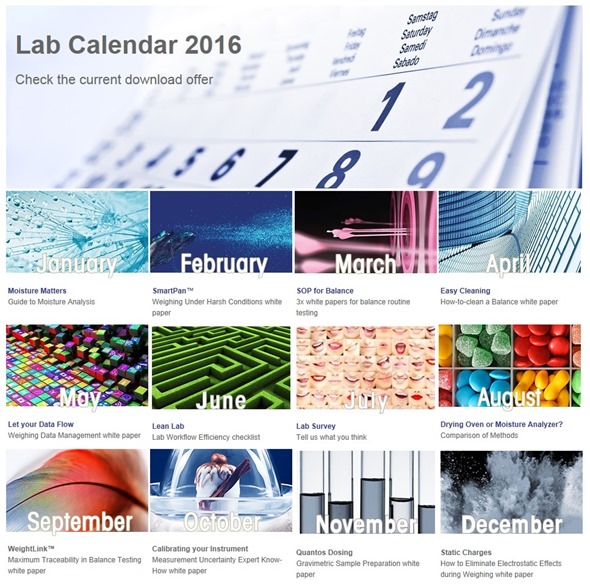Electrostatic charges exert forces on material to be weighed, potentially falsifying results. Learn how these charges arise—and what to do to mitigate them—in a new white paper from METTLER TOLEDO, available only in December as part of the world-renown lab equipment manufacturer’s 2016 e-calendar.

Electrostatic charges can cause incorrect results when dosing powder into a flask set on an analytical balance. If the flask is charged and a complementary charge is induced in the weighing chamber, a net attractive force can pull the flask down, making it seem to have more mass. A charge could also repel the flask, lifting it and making it appear to have less mass.
When present, these net forces lead users to dose too much or too little powder and produce incorrect solution concentrations. The effect can be quite dramatic under some analytical measurement conditions, leading to Out of Specification (OOS) results, large amounts of retesting work, or ineffective and/or dangerous final product.
Dryer environments—like a standard analytical lab—tend to promote static. Everyday actions of operators, such as using a cloth to dry a glass beaker or touching a flask through disposable gloves, can generate measurable charges as well.
The good news is that these charges can be eliminated or dispelled. Download “Static Charges: How to Eliminate Electrostatic Effects during Weighing” in December and learn the havoc charges can create, particularly on microweighing.
The paper will also discuss how METTLER TOLEDO analytical balances detect these charges and explore how to keep charges from forming—or cause them to dissipate—for better accuracy.